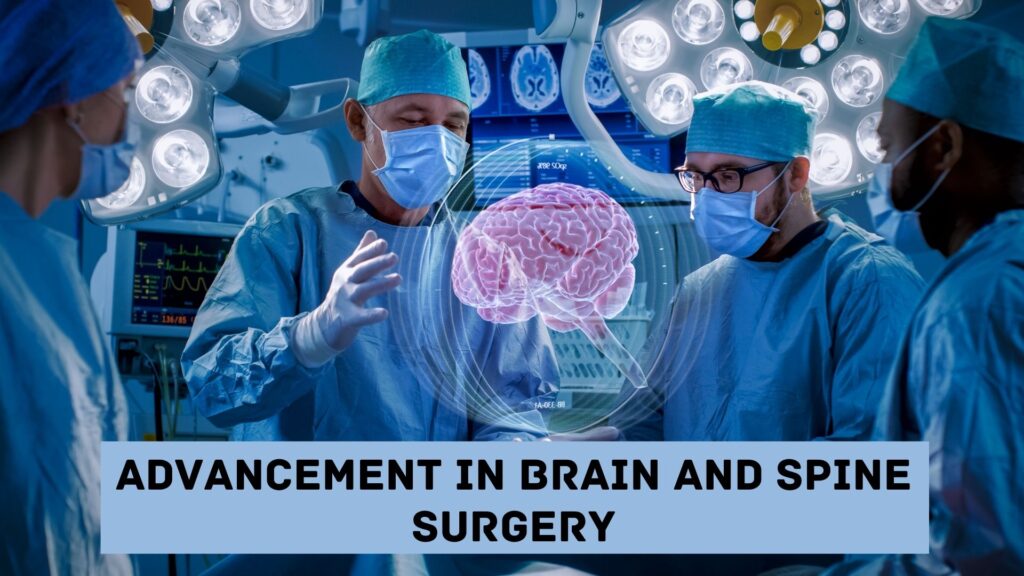
Neurosurgery has always been one of the most complex and high-risk specialties in medicine. Recent advances in technology, research, and clinical practice have revolutionized the face of brain and spine care. At Medline Hospital, Karnal, we are leaders in embracing these advances to offer our patients safer, more effective, and minimally invasive neurosurgical options. Let’s see the recent breakthroughs that are transforming neurosurgery and redefining the future of patient care.
Minimally Invasive Neurosurgery: Accuracy with Quicker Recovery Conventional neurosurgery used to mean big cuts and long recoveries. But minimally invasive neurosurgery (MIS) is turning that around using sophisticated imaging, small cuts, and specialized endoscopic equipment.
Endoscopic Brain Surgery: A small camera and specialized equipment are employed to map the brain with great accuracy, minimizing the risk of injury to adjacent tissues.
Key Benefits: Less post-surgical pain, less scarring, and shorter hospitalization, enabling patients to resume their normal lives sooner.
Minimally Invasive Spine Surgery (MISS): Now widely applied to treat disorders such as herniated discs and spinal stenosis with much reduced risks and quicker recovery.
The Role of Robotics in Neurosurgery
Robotic technology has revolutionized neurosurgical accuracy, allowing surgeons to conduct extremely intricate procedures with increased precision.
How Robotics Improves Surgery: Robotics-assisted systems assist in charting out accurate surgical routes, minimizing human error, and enhancing patient outcomes.
Applications: Robotic technology is especially useful in deep brain stimulation (DBS) for Parkinson’s disease, epilepsy surgeries, and spinal fusion surgeries.
Future Potential: With ongoing innovations, robotic-assisted neurosurgery will increasingly improve safety and efficacy in the treatment of complex neurological disorders.
Artificial Intelligence in Brain and Spine Care
Artificial intelligence (AI) and machine learning (ML) are revolutionizing neurosurgical diagnosis and treatment planning.
AI in Tumor Detection: Sophisticated AI algorithms can scan MRI images and identify brain tumors more quickly and accurately than traditional techniques.
Predictive Analytics: AI enables neurosurgeons to foresee cmplications and create customized treatment plans, leading to improved patient outcomes.
Smart Surgical Assistance: AI-assisted tools offer real-time advice during surgery, enhancing decision-making and minimizing risks.
Advanced Imaging for Enhanced Precision
State-of-the-art imaging technologies play a pivotal role in the success of neurosurgery.
3D Imaging and Augmented Reality (AR): These technologies enable surgeons to see the brain and spine in more detail, enhancing surgical precision.
Intraoperative MRI (iMRI): Allows real-time imaging during surogery, with the goal of total tumor removal and sparing of healthy brain tissue.
Gene Therapy: A New Era in Neurosurgical Treatment
Gene therapy is providing new avenues for the treatment of neurological disorders previously thought to be untreatable.
Targeted Genetic Treatments: Gene-editing tools such as CRISPR are being investigated for the treatment of Parkinson’s disease, glioblastomas, and spinal muscular atrophy.
Neurosurgical Applications: With gene therapy coupled with the precision of surgery, Medline Hospital is pushing the treatment boundaries for conditions that once were thought to be incurable in the brain and spine.
Brain-Computer Interfaces (BCIs): A Glimpse into the Future
BCIs are transforming neurosurgery by facilitating the direct communication between the brain and outside devices.
Restoring Mobility: Paralysed patients can now use brain signals to control robotic limbs.
Seizure Management: BCIs are being designed to identify and halt epileptic seizures, which could drastically enhance
